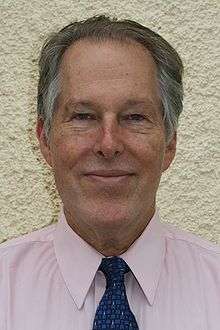Richard Somerville

Richard C. J. Somerville (born 30 May 1941) is a climate scientist who is Distinguished Professor Emeritus at Scripps Institution of Oceanography, University of California, San Diego, USA, where he has been a professor since 1979. Somerville also sits on the Science and Security Board of the Bulletin of the Atomic Scientists, where he is involved in the annual deliberations regarding the movement of the Bulletin's famed Doomsday Clock.
Early life
Somerville was born in Washington, DC, USA on 30 May 1941. He received a B. S. in meteorology from Pennsylvania State University in 1961 and a Ph.D. in meteorology from New York University in 1966.
Academic career
Somerville is a theoretical meteorologist and an expert on computer simulations of the atmosphere. His research is on the physics of clouds and their role in the climate system. His interests include all aspects of climate, including climate science outreach and the interface between science and public policy. This research is reflected by a long list of publications in highly respected, peer reviewed journals.[1] He comments frequently on climate and environmental issues for the media. He formally retired in 2007 but remains active in research, education and outreach. Somerville was involved for many years in a major research program at the Center for Multiscale Modeling of Atmospheric Processes [2] where he and his graduate students and postdoctoral fellows investigated ways to improve the realism of climate models.
Honors
Among his honors to date, Somerville has received awards from the American Meteorological Society for both his research and his popular book, The Forgiving Air: Understanding Environmental Change, a new edition of which was published in 2008 (ISBN 9781878220851). He was a Coordinating Lead Author for the 2007 Intergovernmental Panel on Climate Change Fourth Assessment report (IPCC AR4).[3] The American Geophysical Union awarded him its 2015 Climate Communication Prize, which "highlights the importance of promoting scientific literacy, clarity of message, and efforts to foster respect and understanding of science-based values as they relate to the implications of climate change."
Advocacy and Outreach
Somerville was an organizer and signatory of the 2007 Bali Declaration by Climate Scientists.[4] Throughout 2009 he worked with an international team of 26 leading climate scientists to prepare the Copenhagen Diagnosis. The Copenhagen Diagnosis was released in the lead-up to the UNFCCC COP15 conference in Copenhagen. It synthesizes the most recent scientific findings from hundreds of peer reviewed papers in areas such as greenhouse gas emissions, sea level, glaciers, tipping points and extreme climate events, among other key topics.
In early 2010, Somerville recorded a series of interviews with ABC News, in which he discusses "Four Big Questions of Global Warming", "Disinformation and Medical Metaphors for Climate Change", and "Our Global Warming Game of Chicken".
Other interviews, lectures and popular writings can be found on his homepage.
References
- ↑ "Publications". Retrieved 26 September 2015.
- ↑ CMMAP (7 April 2009). "Center for Multiscale Modeling of Atmospheric Processes". Retrieved 8 April 2009.
- ↑ International Panel on Climate Change (2008). "Coordinating lead authors, lead authors, and contributing authors are listed alphabetically by surname" (PDF). Working Group 1 Report. Retrieved 8 April 2009.
- ↑ Andrew Revkin (9 January 2008). "The Road from Climate Science to Climate Advocacy". The New York Times. Retrieved 8 April 2009.
External links
- Academic profile
- Richard Somerville's homepage
- Scripps Institution of Oceanography
- Somerville on climate science and ethics
- Climate Science Watch article. Feb 2008
- University of California, San Diego
- The Copenhagen Diagnosis
|